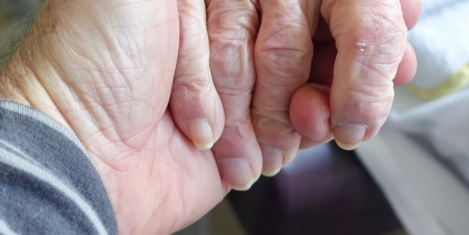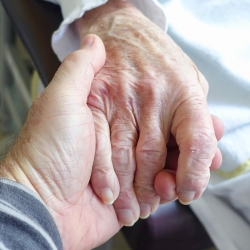To provide the best experiences, we use technologies like cookies to store and/or access device information. Consenting to these technologies will allow us to process data such as browsing behaviour or unique IDs on this site. Not consenting or withdrawing consent, may adversely affect certain features and functions.
The technical storage or access is strictly necessary for the legitimate purpose of enabling the use of a specific service explicitly requested by the subscriber or user, or for the sole purpose of carrying out the transmission of a communication over an electronic communications network.
The technical storage or access is necessary for the legitimate purpose of storing preferences that are not requested by the subscriber or user.
The technical storage or access that is used exclusively for statistical purposes.
The technical storage or access that is used exclusively for anonymous statistical purposes. Without a subpoena, voluntary compliance on the part of your Internet Service Provider, or additional records from a third party, information stored or retrieved for this purpose alone cannot usually be used to identify you.
The technical storage or access is required to create user profiles to send advertising, or to track the user on a website or across several websites for similar marketing purposes.
 A new report from the Institute for Employment Studies (IES) claims that better support for line managers is needed in the workplace. The Squeezed Middle: Why we should be hugging and not squeezing line managers recommends that HR metaphorically ‘hugs and not squeezes’ people in management roles, if organisations are looking to lower health related sickness absence and stimulate productivity growth. (more…)
A new report from the Institute for Employment Studies (IES) claims that better support for line managers is needed in the workplace. The Squeezed Middle: Why we should be hugging and not squeezing line managers recommends that HR metaphorically ‘hugs and not squeezes’ people in management roles, if organisations are looking to lower health related sickness absence and stimulate productivity growth. (more…)






 The UK is ignoring the value of millions of workers by overlooking workplace training and opportunities to upskill, a new survey has suggested. According to the
The UK is ignoring the value of millions of workers by overlooking workplace training and opportunities to upskill, a new survey has suggested. According to the 
 Two thirds of UK business leaders expect developments in technology to lead to an increase in the number of permanent jobs created this year, a survey has suggested. The South West and Wales region is the most confident about the impact of new technology, with nearly three quarters of businesses anticipating jobs growth, compared to 56 percent in the least optimistic region, the North of England.
Two thirds of UK business leaders expect developments in technology to lead to an increase in the number of permanent jobs created this year, a survey has suggested. The South West and Wales region is the most confident about the impact of new technology, with nearly three quarters of businesses anticipating jobs growth, compared to 56 percent in the least optimistic region, the North of England. 
 A problem shared may be a problem halved but, according to a new
A problem shared may be a problem halved but, according to a new 
 Nine in ten freelancers in the UK feel the move to freelancing has improved their quality of life, a
Nine in ten freelancers in the UK feel the move to freelancing has improved their quality of life, a
 Freelancers value the freedom and flexibility of being their own boss but their happiness is most closely correlated with how much money they earn, a survey of 7,000 freelancers has claimed. According to the
Freelancers value the freedom and flexibility of being their own boss but their happiness is most closely correlated with how much money they earn, a survey of 7,000 freelancers has claimed. According to the 
 Some 47 percent of employees who care for both children and elderly relatives (sandwich carers) are keeping these responsibilities hidden from their employer, a survey from
Some 47 percent of employees who care for both children and elderly relatives (sandwich carers) are keeping these responsibilities hidden from their employer, a survey from 
 Executives in small and mid-sized businesses in the UK are more anxious about major decisions at work than critical decisions at home that affect their family, a new study has claimed. The new study by
Executives in small and mid-sized businesses in the UK are more anxious about major decisions at work than critical decisions at home that affect their family, a new study has claimed. The new study by 
 Senior employees being too confident about the value of their ideas could be one reason businesses are failing, according to research by the University of Cologne. The study, conducted by Professor Fabian Sting and a team of interdisciplinary co-authors, highlights how choosing the wrong ideas to pursue can lead businesses to make unwise investments and miss out on opportunities, which could threaten their survival. A large part of the problem, it says, is that the person who comes up with the idea overestimates how successful their innovation will be and views their skill or performance as better than it actually is.
Senior employees being too confident about the value of their ideas could be one reason businesses are failing, according to research by the University of Cologne. The study, conducted by Professor Fabian Sting and a team of interdisciplinary co-authors, highlights how choosing the wrong ideas to pursue can lead businesses to make unwise investments and miss out on opportunities, which could threaten their survival. A large part of the problem, it says, is that the person who comes up with the idea overestimates how successful their innovation will be and views their skill or performance as better than it actually is. 


 Following reports that job applications on the first working Monday of the New Year spiked by 89 percent compared to the average Monday in December, many UK businesses may be missing a trick in their efforts to retain staff, new research has suggested. When researchers commissioned by
Following reports that job applications on the first working Monday of the New Year spiked by 89 percent compared to the average Monday in December, many UK businesses may be missing a trick in their efforts to retain staff, new research has suggested. When researchers commissioned by 
 Getting on well with colleagues gives workers greater job satisfaction than having a good salary, new research has claimed. “
Getting on well with colleagues gives workers greater job satisfaction than having a good salary, new research has claimed. “






